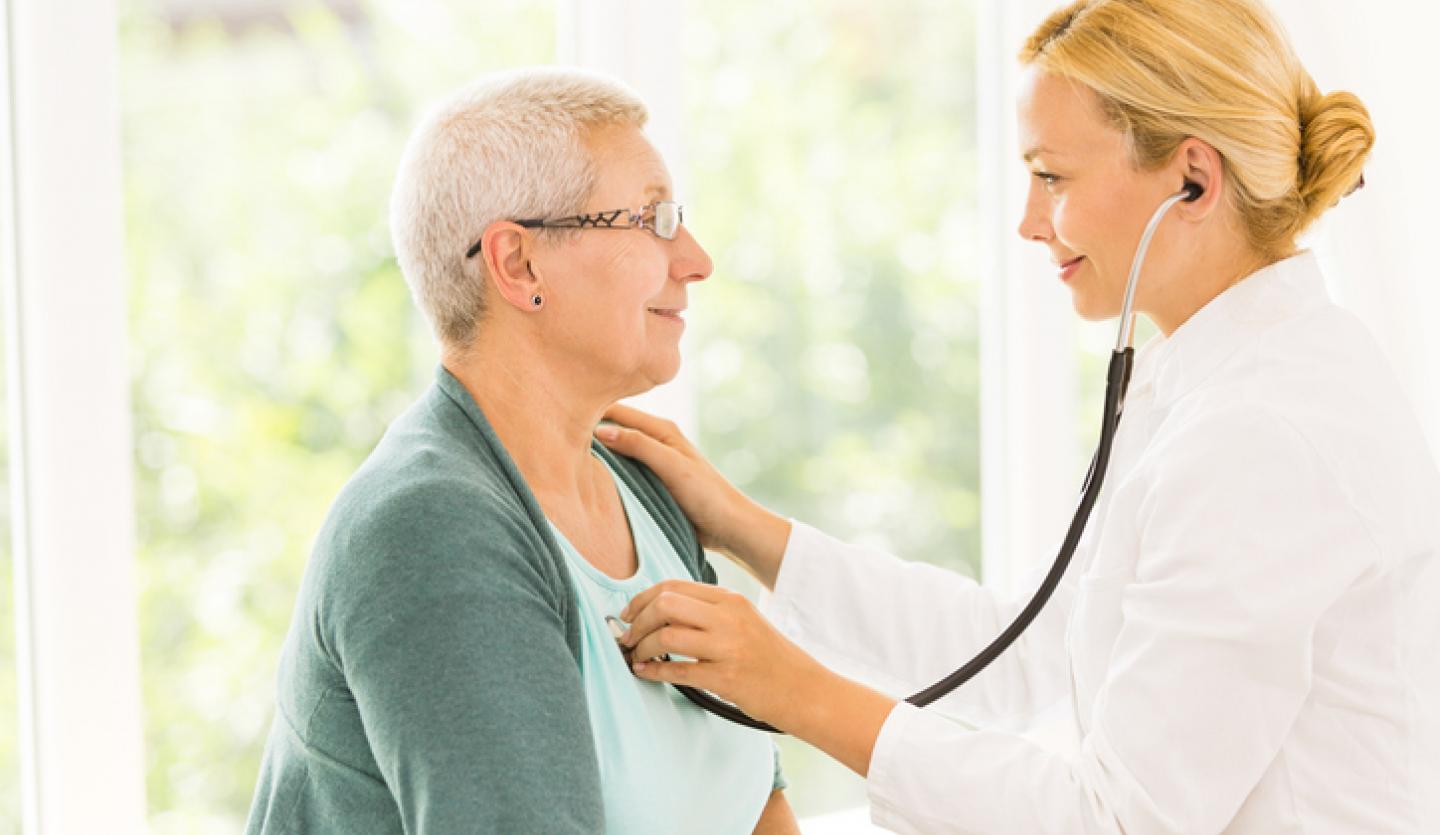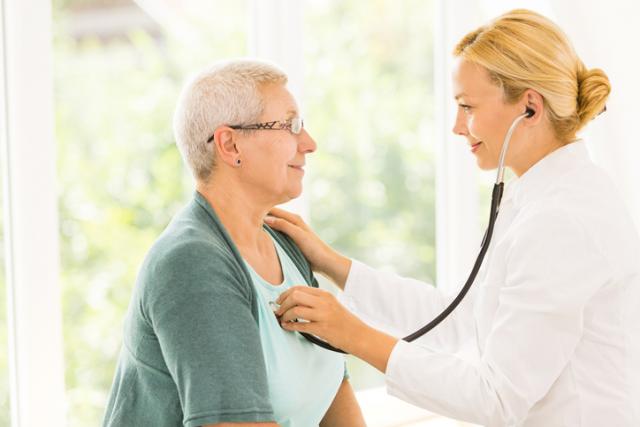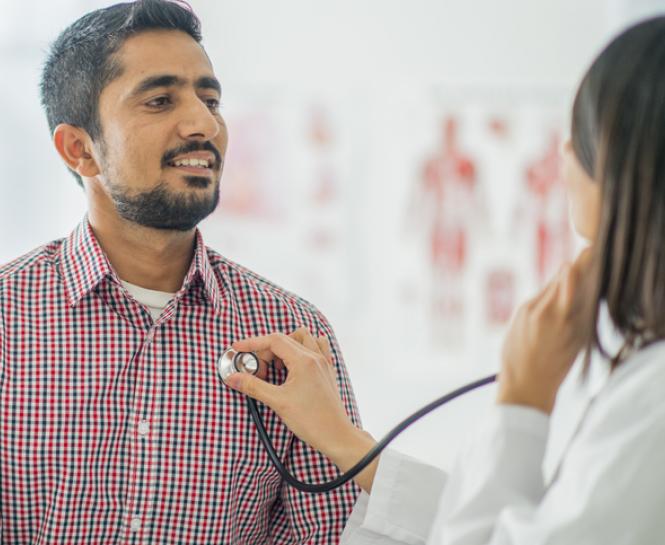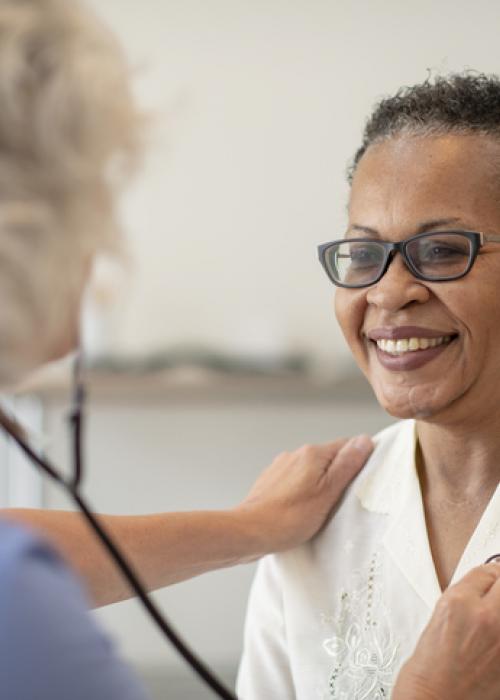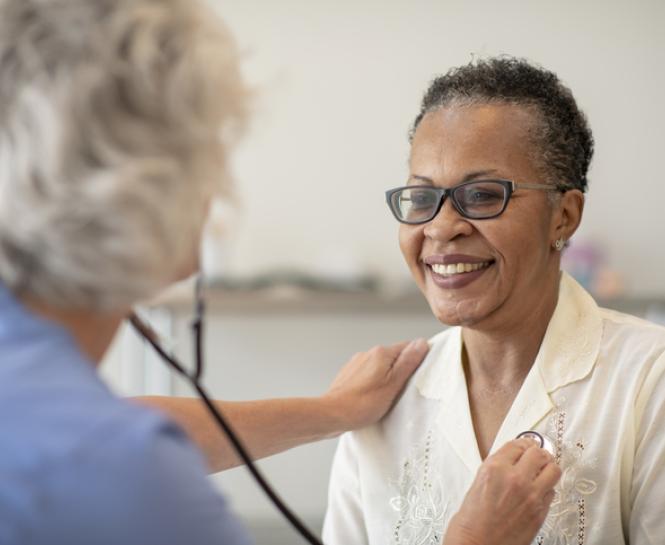What is a heart monitor?
"A heart monitor is an easy and safe way to learn about your heart rhythm in real-time," said Jason Sherer, MD, Catholic Health Cardiologist. "The results from wearing a heart monitor give your cardiologist data that can help diagnose, treat and monitor many heart conditions."
Who needs a heart monitor?
A cardiologist will recommend you wear a heart monitor for reasons including:
- You have frequent heart palpitations—a feeling that your heart is fluttering, skipping a beat or racing/beating too fast.
- You have or are at risk for atrial fibrillation (AFib)—a type of arrhythmia or abnormal heartbeat.
- You had a heart attack or stroke.
- You have a heart condition and must ensure your medicine is working.
- To ensure a pacemaker or implantable cardioverter-defibrillator (ICD) works correctly.
- You have a history of chest pain, fainting or dizziness.
What are the types of heart monitors?
"Heart monitors vary by how long you wear them and how they collect and send data," said Dr. Sherer. "Your cardiologist will recommend the right heart monitor based on your symptoms and medical history."
Common heart monitors include:
Holter monitor. Electrodes—small conducting patches with adhesive attached by wires to a monitor—are placed on your chest. A Holter monitor is worn around your neck or waist with a strap or belt or carried in your pocket. Your heart rhythm is monitored continuously for 24 to 48 hours. Data gets reviewed after the removal of the device.
Patch recorder. This small device continuously records heart activity for up to 14 days and uses no wires or electrodes. It is placed on your chest using adhesive. Data gets reviewed after the removal of the device.
Symptom event monitor. This device is carried in a pocket or worn on a wrist. When you experience symptoms, you turn on the device and place the electrodes on your chest to record heart activity. Most event monitors can send data in real time to your doctor.
This device records your ECG only when symptoms occur, not before they occur. You carry this device in a pocket or wear it on your wrist. When you feel symptoms, you turn on the device and place the electrodes on your chest to record the ECG.
Implantable loop recorder. This device gets implanted under your skin on the chest—an outpatient procedure that does not require sedation. Your heart activity is recorded continuously via a home monitoring system that sends data to a central monitoring station at a hospital, medical office or monitoring company. The device can remain implanted for up to four years.
How do I safely and correctly use my heart monitor?
Your cardiologist will provide specific instructions to ensure your safety and that the monitor works correctly. Instructions typically include:
- How to properly wear or hold the monitor.
- How to sleep comfortably with the monitor.
- How to keep the area around the monitor or electrodes clean.
- How to avoid getting the device wet when showering or swimming.
- A list of devices to avoid being near while wearing a monitor, such as metal detectors, X-ray machines, and electric blankets, toothbrushes and razors.
- Tracking your exercise.
- Tracking your medication usage.
- Tracking your symptoms.
What do my results mean?
Your cardiologist will review the data collected from your heart monitor and provide you with information including:
- If your heart rhythm is normal and steady or irregular.
- If your heartbeat is normal, fast or irregular.
- If your heart signals are strong and normal or irregular.
If your results show abnormal heart rhythms, your doctor may diagnose you with and begin treatment for a cardiac issue such as:
- Tachycardia (fast heart rate)
- Bradycardia (slow heart rate)
- Atrial fibrillation (AFib)
- Atrial flutter
Your doctor may also recommend further testing before making a diagnosis.
Take steps today to improve your heart health
Make an appointment with a primary care physician (PCP) who can help you make lifestyle adjustments or refer you to a cardiologist for further examination.

